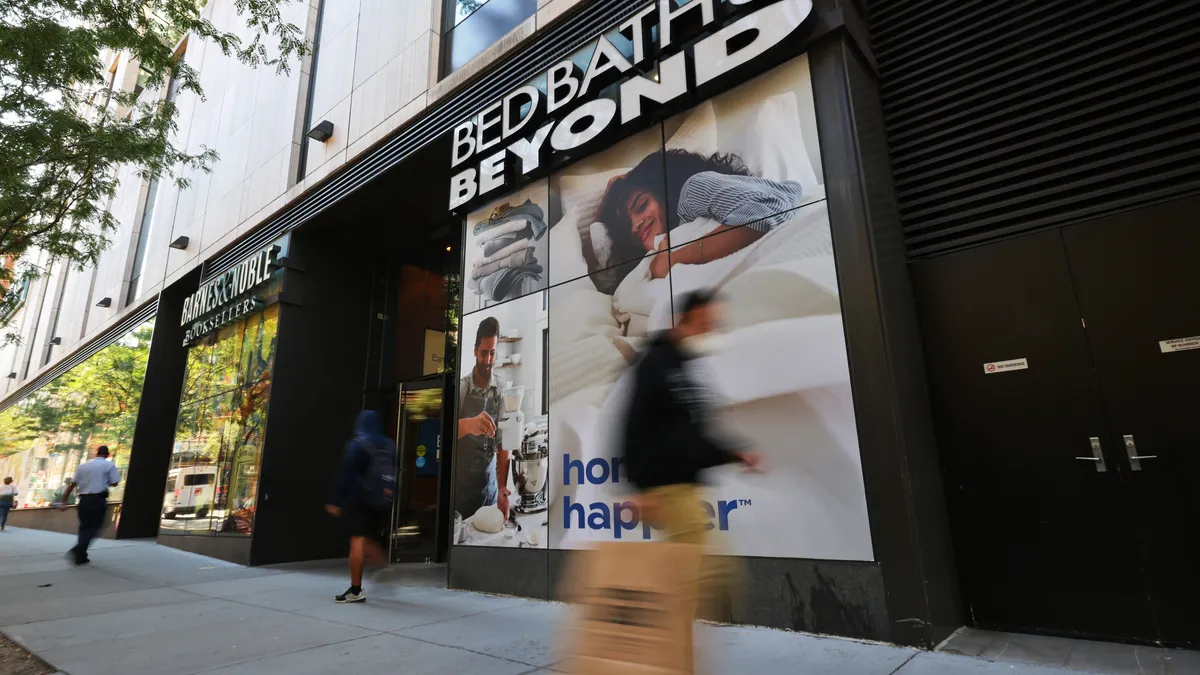Dive Brief:
- Perfumania exited Chapter 11 bankruptcy on Wednesday after the court approved a plan to pay off many of its lenders with cash and release stockholders for $2 a share, according to court documents. The company filed for bankruptcy in August.
- The plan left the retailer with a $100 million exit facility and an $83.8 million asset-based revolving credit facility. NewHoldCo — the newly formed private company that owns and operates Perfumania under its bankruptcy plan — is backed by Rene Garcia and the Nussdorf Family, which founded the fragrance retailer and wholesaler in 1980 and owned a substantial portion of the company’s publicly traded stock prior to its filing.
- In bankruptcy, the company asked to reject some 161 unexpired leases, according to Perfumania’s restructuring plan. It ended up closing 65 stores during the Chapter 11 process, a spokesperson for Perfumania told Retail Dive. At the time of filing, the retailer operated 227 stores.
Dive Insight:
In a year of record retail bankruptcies, there’s been no shortage of outcomes.
In several cases where private equity firms had owned bankrupt retailers, including rue21 and Payless, bondholders ended up owning the reorganized companies. Here, Perfumania’s founding family has taken control of the fragrance seller they created back in 1980.
The Nussdorf family had earlier looked at reorganizing the perfume company. Months ahead of filing, they hired an investment bank, Imperial Capital, to review the company’s operations and finances and consider its restructuring options, according to court filings. Imperial found a company struggling with debt, sales declines and profit losses. It concluded that Perfumania had no value to its shareholders as a going concern.
CEO Michael Katz said in a statement at the time of filing that Perfumania had been "working diligently to amend its business model, reduce its cost structure, improve supply chain efficiency, optimize marketing, reduce expenses and improve operating results long-term." It was also closing underperforming stores. In the first quarter of this year, the company closed 43 stores, according to Securities and Exchange Commission filings. The Ch. 11 filing is meant to accelerate those efforts, Katz said.
The retailer’s total debt, according to its bankruptcy filings, sat at $253.9 million at the time of filing. In 2016, sales fell by 13.5% to $468.9 million compared to the prior-year period. Losses, too, had been widening for the retailer, from 75 cents a share in 2015 to $1.53 a share last year.
In Ch. 11, the company planned to not just reduce its expenses but transform into more of a digital retailer. "Looking forward, Perfumania will further emphasize and invest in its e-commerce business so as to improve customers' online shopping experience," Perfumania said in a release in August.
As with other retailers that have restructured in bankruptcy this year, the test for Perfumania will be maintaining market share and adapting to a rapidly changing retail market with a smaller footprint and a brand tarnished, at least in the short-term, by a Chapter 11 filing.
This story is part of our ongoing coverage of the 2017 holiday shopping season. You can browse our holiday page and sign up for our holiday newsletter for more stories.













